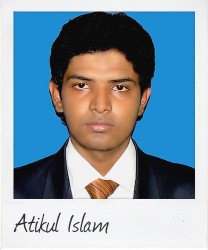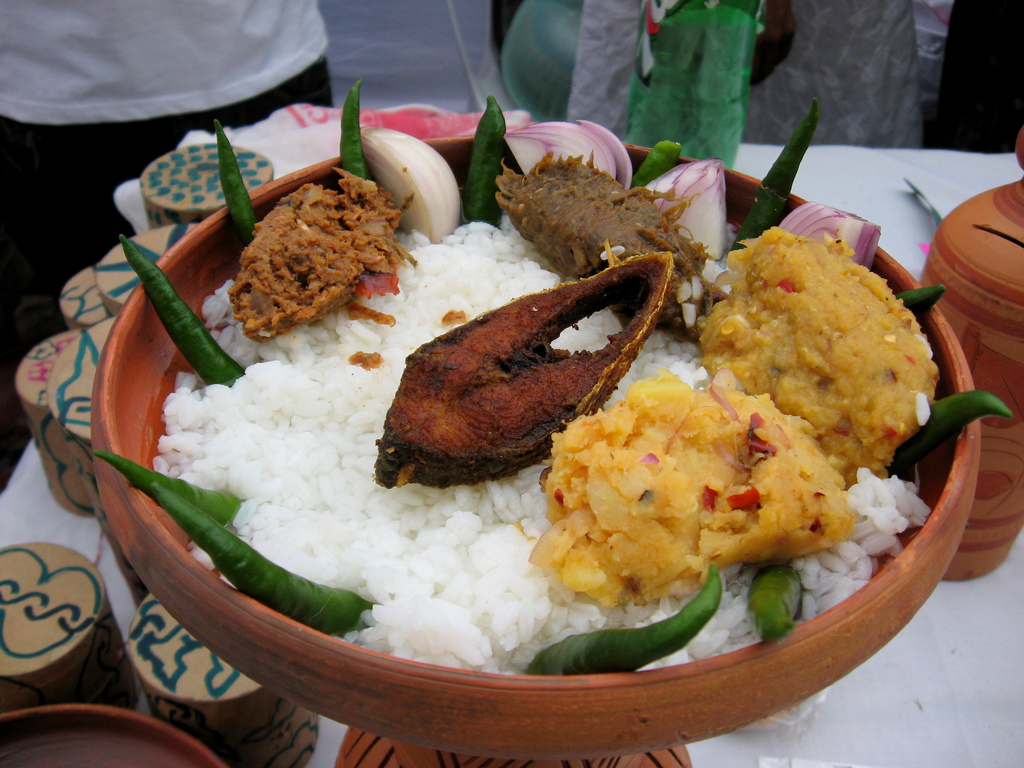“Festival reflects Bangladeshi traditional culture”
May 19th, 2015 Festivals celebrate culture and affirm national identity, writes Atikul Islam, 24, a Correspondent from Bogra in Bangladesh as he describes the events that mark Bangla New Year.
Festivals celebrate culture and affirm national identity, writes Atikul Islam, 24, a Correspondent from Bogra in Bangladesh as he describes the events that mark Bangla New Year.
Pahela Baishakh is the first day of the Bangla New Year and the first day of Bangla’s new month, Baishakh. Pahela Baishakh is celebrated more or less all over the country through fairs, concerts, and art.
The biggest festival of the country occurs at the Ramna Batmul and adjacent Dhaka University area. Fine arts institute students of Dhaka University take part every year. They create art on walls and in the road with different symbolic art of animals, plants, and other subjects. A rally day is celebrated every year in the University area.
People, especially the youth, move into the area from morning to evening of the day. Males usually wear Panjabi and t-shirts while the females usually wear traditional Bangladeshi cotton shari. Artists write ‘Pahela Baishakh’ and draw flowers on the hands or cheeks of the visitors.
Chayanat artists play their group song in the Bakultala of Fine Arts Institute, Dhaka University. They wear similar clothes during their musical performance at Bakultala and their songs entertain youths.
Traditional fast food is available at stalls in different spots of the area. From noon to evening, different music bands come to sing in the concert stage of the area. Youth with their friends come to the concert and celebrate with singing and dancing along with the famous singers of the nation.
During the festival, the government provides special food, including the traditional Bangladeshi food Hilsha and watered rice to residential educational institutions, orphanages, jails and other residential government institutions. On the morning of the special day, many families and institutions arrange to also share in eating the highly-regarded traditional Bangladeshi dishes.
Youth eagerly wait for the day and plan to go to the area with their loved one or friends. They share their joyous feelings and enjoy live concerts. Some ride on the traditional Nagor Dola, a colourful type of ferris wheel, to celebrate the day.
Fairs are also arranged in the different parts of the country, usually in every district or town area. Concerts are where people can hear modern and traditional Bangla songs being sung.
Bangladeshi television channels broadcast traditional Bangladeshi song and live telecasts of attractions of the day from different spots of capital city, Dhaka. Television viewers can understand, seeing the programs, that this is the day of Pahela Baishakh. Those who are not able to attend the celebrations in person can enjoy the programs through television channels.
In the age of global cultural imperialism, the festival of Pahela Baishakh raises the profile of the traditional Bangladeshi culture. Youths celebrate the day with joy and enthusiasm. With globalization, Bangladeshi music is changing. The music bands of the country have made attractive Bangla songs and are enriching Bangladeshi culture. The bands are a special attraction of celebrating Pahela Baishakh, reflecting the Bangladeshi youth attitude, behaviour, and relationships through music.
Pahela Baishakh reminds us about our Bangladeshi culture and affirms the identity of Bangladeshi nation. With satellite television, Bangladeshi people are becoming accustomed to Indian and English culture through movies, music, drama, and cartoons. If a festival like Pahela Baishakh did not attract the youth, they could lose their traditional culture and national identity.
If we, the Bangladeshi people, want to enrich our nationality and patriotism we have to raise up the patriotic music, the classical music of world poet Rabindranath Tagore, and the national poet Kazi Nazrul Islam. Lyricists and singers of the present time have responsibility to uphold the day and Bangladeshi culture by making good songs reflecting the festival, Bangladeshi culture, patriotism, and natural beauty.
photo credit: Panta iLish via photopin (license)
…………………………………………………………………………………………………………………
About me: I am a youth researcher and writer on different social, political and economic development issues. My aim is to serve my nation and abroad through research work, and to continue my research as a university or college lecturer.
I am founder of an online think-tank named Center for Strategic Analysis, where I work as a researcher and editor. Our vision is to lead the knowledge society through strategic analysis.
…………………………………………………………………………………………………………………
Opinions expressed in this article are those of the author and do not necessarily represent the views of the Commonwealth Youth Programme. Articles are published in a spirit of dialogue, respect and understanding. If you disagree, why not submit a response?
To learn more about becoming a Commonwealth Correspondent please visit: http://www.yourcommonwealth.org/submit-articles/commonwealthcorrespondents/
…………………………………………………………………………………………………………………




